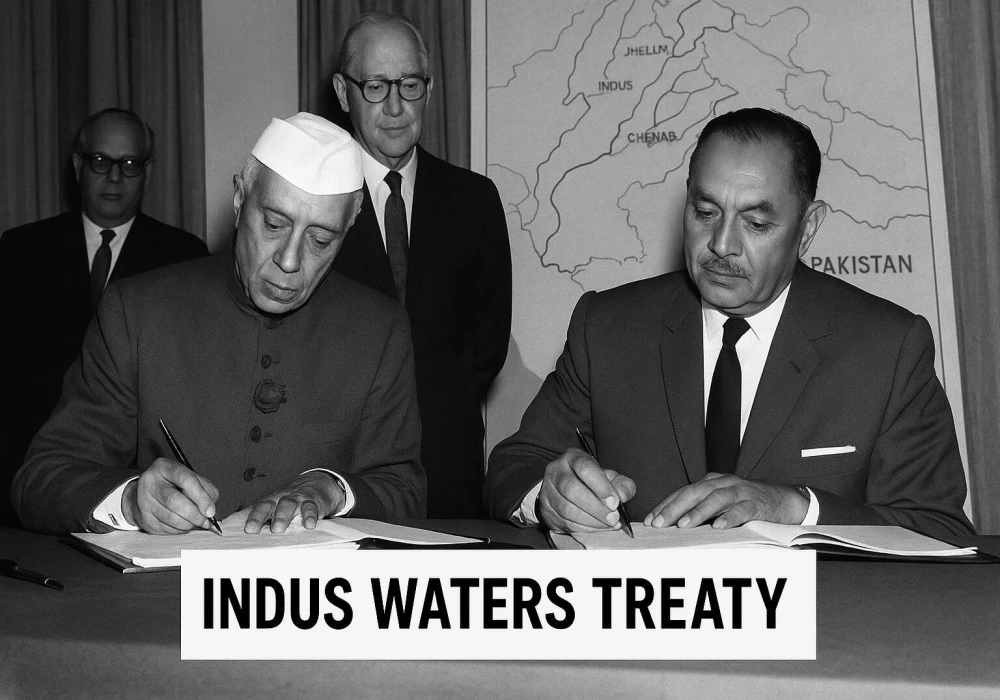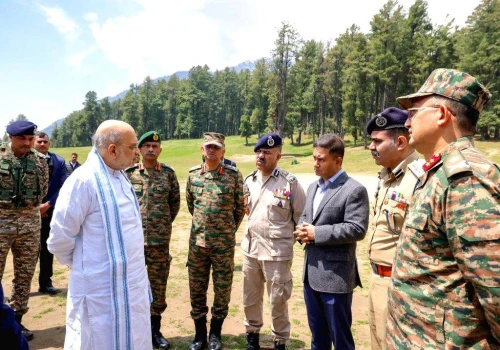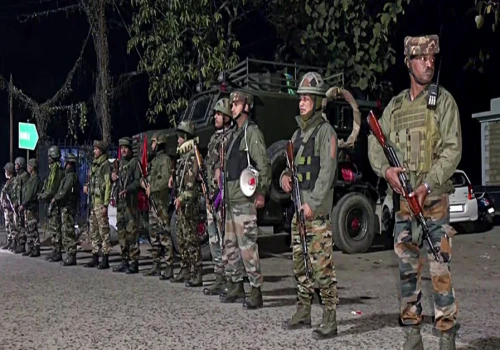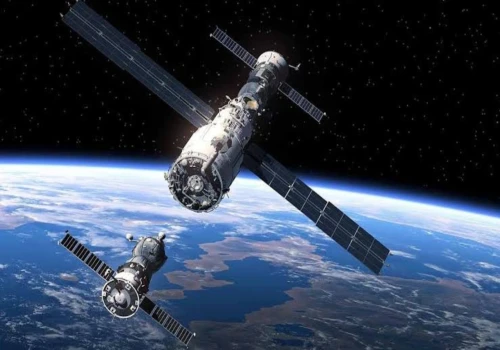
The Indus Waters Treaty (IWT) is one of the most important water-sharing agreements in the world. It was signed between India and Pakistan in 1960, with the help of the World Bank. This treaty has helped both countries share the waters of the Indus River system peacefully for over six decades, even during times of war.
The Indus River system includes six rivers — the Indus, Jhelum, Chenab, Ravi, Beas, and Sutlej. These rivers originate in India and flow through Pakistan into the Arabian Sea.
How the Treaty Works
According to the Indus Waters Treaty:
- India got control over the three "eastern rivers" — Ravi, Beas, and Sutlej.
- Pakistan got control over the three "western rivers" — Indus, Jhelum, and Chenab.
India is allowed to use the western rivers for limited purposes like drinking water, irrigation, and hydroelectric power (without affecting the natural flow of water too much). But most of the water from these rivers flows into Pakistan.
This arrangement was made because Pakistan’s agriculture and economy heavily depend on the waters of the Indus system. It also helped avoid disputes and wars over water.
Why the Treaty is So Important
The Indus Waters Treaty is often called a symbol of cooperation. Even when India and Pakistan fought wars in 1965, 1971, and during the Kargil conflict in 1999, the treaty remained in place. It showed that both countries understood the value of peaceful water-sharing.
The treaty also ensures that both sides have a clear understanding of their rights and responsibilities. If any dispute arises, there is a well-defined system involving neutral experts or even international courts to settle the issue.
Recent Talks About Suspending the Treaty
In recent times, especially after certain political and military tensions between the two nations, India has spoken about the possibility of reviewing or even suspending the Indus Waters Treaty.
The suspension talk gained more attention after terrorist attacks in India that were blamed on Pakistan-based groups. Many Indian leaders and experts started questioning why India should continue sharing its water resources when relations were strained.
In 2023, India sent a formal notice to Pakistan, asking for a renegotiation of the treaty, citing long-standing disputes and Pakistan’s objections to India's hydroelectric projects on the western rivers.
Can the Treaty Be Suspended?
India Suspends the Indus Waters Treaty After Pahalgam Attack
On April 23, 2025, India officially suspended the Indus Waters Treaty with Pakistan. This major decision came after a deadly terrorist attack in Pahalgam, Jammu and Kashmir, where 26 tourists were killed. The attack was claimed by the Resistance Front, a group linked to Pakistan-based Lashkar-e-Taiba. India blamed Pakistan for supporting terrorism and cited it as a breach of the treaty's trust.
Following the suspension, India has halted the sharing of river data and is reviewing water flow arrangements. It is also exploring ways to divert more water for its own domestic use. This sudden move has raised alarms in Pakistan, where the Indus River system is vital for agriculture and drinking water.
Pakistani officials have called the suspension an "act of war" and warned of serious consequences. Meanwhile, the international community has expressed concern that tensions between the two nuclear-armed neighbors could escalate further.
The suspension marks a major shift in how India and Pakistan manage their shared water resources and could have long-term effects on regional peace and security.
What Happens if the Indus Waters Treaty is Suspended?
If the Indus Waters Treaty remains suspended, it can have major implications for both countries.
Implications for India
- More Water for Development: India could technically use more water from the western rivers, boosting irrigation and hydropower projects, especially in states like Jammu and Kashmir, Punjab, and Himachal Pradesh.
- Strategic Pressure: Having greater control over water could give India more bargaining power in diplomatic talks with Pakistan.
- International Criticism: India might face criticism for breaking an internationally recognized treaty. The World Bank and other nations could see it as a violation of trust.
- Environmental Challenges: Rapid development projects could lead to environmental damage if not properly managed.
Implications for Pakistan
- Severe Water Shortage: Pakistan heavily relies on the Indus system for its agriculture. If the water flow is restricted, it could harm crops and affect food security.
- Economic Impact: Agriculture is a major part of Pakistan’s economy. A shortage of water would directly hit farmers, industries, and the overall economy.
- Increased Tensions: A treaty suspension could further worsen already tense relations between India and Pakistan, leading to diplomatic standoffs or even military escalations.
- International Involvement: Pakistan may seek international support to pressure India, bringing global attention to the dispute.
But now, with India officially suspending the treaty, a new and uncertain chapter has begun.

_500_x_350.webp)
 (1)_500_x_350.webp)







